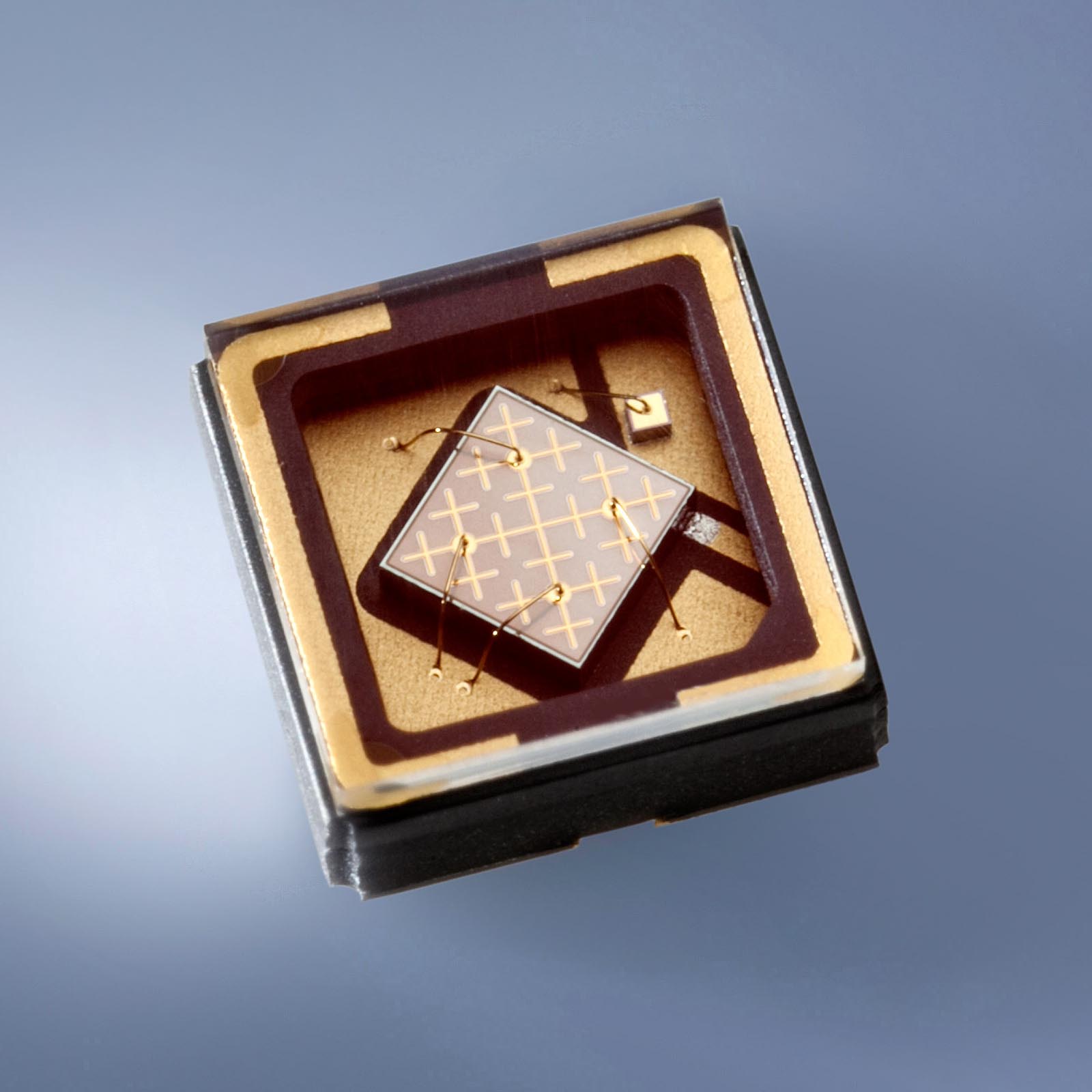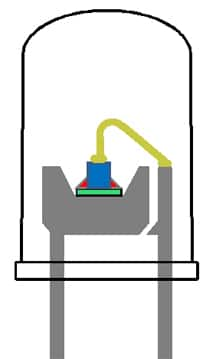Navigation
Install the app
How to install the app on iOS
Follow along with the video below to see how to install our site as a web app on your home screen.
Note: This feature may not be available in some browsers.
More options
You are using an out of date browser. It may not display this or other websites correctly.
You should upgrade or use an alternative browser.
You should upgrade or use an alternative browser.
Watch this Radion G5 video if wanting to buy used or new
- Thread starter Big E
- Start date
- Tagged users None
Interesting! I guess the only other option if you can’t replace one led is to buy the $200 upgrade but doesn’t g6 have even more of these low quality uv? Or maybe they found better ones now idk.
- Joined
- Sep 18, 2017
- Messages
- 5,597
- Reaction score
- 3,447
Even " quality" UV's in general have a shorter lifespan than " normal" diodes.
There is no proof afaic that those on the radion are "low quality".
Regarding the brand of violets/UV.
I suspect, since the only manuf. I ever saw that "rotates" the emitting surface 45 degrees is Nichia. ONLY a guess btw.
That said, good quality ot not, it still failed and failed in a way that crippled the entire light . It would have been interesting to see if it worked with that channel off though.
The " failing intermittent" is troublesome and personally have seen it more than I like.
Failing open or dead short is preferred .
There is no proof afaic that those on the radion are "low quality".
Regarding the brand of violets/UV.
I suspect, since the only manuf. I ever saw that "rotates" the emitting surface 45 degrees is Nichia. ONLY a guess btw.
That said, good quality ot not, it still failed and failed in a way that crippled the entire light . It would have been interesting to see if it worked with that channel off though.
The " failing intermittent" is troublesome and personally have seen it more than I like.
Failing open or dead short is preferred .
- Joined
- Oct 3, 2019
- Messages
- 679
- Reaction score
- 694
I know I owe you a response on a similar subject. Too many Kessil and Radion repairs latelyEven " quality" UV's in general have a shorter lifespan than " normal" diodes.
There is no proof afaic that those on the radion are "low quality".
Regarding the brand of violets/UV.
I suspect, since the only manuf. I ever saw that "rotates" the emitting surface 45 degrees is Nichia. ONLY a guess btw.
That said, good quality ot not, it still failed and failed in a way that crippled the entire light . It would have been interesting to see if it worked with that channel off though.
The " failing intermittent" is troublesome and personally have seen it more than I like.
Failing open or dead short is preferred .
My guesses are as good as anyone else's as I only operate on facts available to me. But those facts do include the following:
- UV leds are by far the most common LED related failure on all Radions I've worked on.
- I can barely keep replacement UV leds in stock for all generations (G3-G5 most common repairs) of Radions.
- Nearly every Radion that comes in with a short circuit error requires at least 3-4 UV LEDs replaced. Many of them (even those that still appear to turn on) degraded down to 10-100 kOhm resistance. This is compared to a very occasional white or blue/royal LED failure.
- Looking at my statistics, for every failed white/blue LED, I replace about 20-30 UV LEDs
Another important point I'm trying to make is not that Ecotech installs "low quality" UV LEDs by choice, but that UV LED quality compared to other major colors in Ecotech lights is evidently lower. Moreover, I'm not entirely sure that "high quality" of UV LEDs which is comparable to the quality of other LEDs in these lights actually exists. My argument is that Ecotech likely installs what's in demand for the right spectrum based on what is currently available on the market. And what is available for the UV spectrum doesn't seem to match up, in terms of quality, with more common wavelengths of white and blue spectrum.
Finally, I agree that for some it would probably be good not to fail the whole light when UVs fail, especially since Radions can detect the failure. Perhaps turning off the UV channel instead and giving the owner the option to repair or keep operating the light with the limited spectrum would be a better solution. But then again, I can see how this can backfire also.
Last edited:
- Joined
- Oct 3, 2019
- Messages
- 679
- Reaction score
- 694
Kessil A360X became the second most common light that comes in for repair. The issue with those lights is very rarely (if ever) the actual LED cluster (there will be a video on this soon). Instead, the problem is either with the power circuit (too many to list) or the LED channel circuit (mosfet or zener diode)I have recently had 3 kessil a360x lights fail. Two lost the blue channel, and one was completely dead. Two were still under warranty.
I have recently had 3 kessil a360x lights fail. Two lost the blue channel, and one was completely dead. Two were still under warranty.
What was the issue with your kessil 360x lights
- Joined
- Mar 28, 2019
- Messages
- 161
- Reaction score
- 139
Really ? Who makes them and do you have a data sheet from the manufacturer, or are you just giving an opinion based on a feeling ? The CREE warranty is one of the best in the industry and easily reflected by the quality of their products, some of them with a 10 year warranty. Who makes these diodes and what kind of reputation do they have ?Even " quality" UV's in general have a shorter lifespan than " normal" diodes.
There is no proof afaic that those on the radion are "low quality".
Regarding the brand of violets/UV.
I suspect, since the only manuf. I ever saw that "rotates" the emitting surface 45 degrees is Nichia. ONLY a guess btw.
That said, good quality ot not, it still failed and failed in a way that crippled the entire light . It would have been interesting to see if it worked with that channel off though.
The " failing intermittent" is troublesome and personally have seen it more than I like.
Failing open or dead short is preferred .
I've said it before on here, high quality fixtures will have that reflected in their warranty.
- Joined
- Sep 18, 2017
- Messages
- 5,597
- Reaction score
- 3,447
CREE doesn't "do" violet/UV...Really ? Who makes them and do you have a data sheet from the manufacturer, or are you just giving an opinion based on a feeling ? The CREE warranty is one of the best in the industry and easily reflected by the quality of their products, some of them with a 10 year warranty. Who makes these diodes and what kind of reputation do they have ?
I've said it before on here, high quality fixtures will have that reflected in their warranty.
Main ones making high power uv/violet leds "I " know of are:
Viosys (Seoul Semiconductor? )
Lumileds
Nichia
SemiLED
https://www.directindustry.com/industrial-manufacturer/ultraviolet-led-108043.html
My guess is based on les geometry.
None, btw have lifespans in the 50000hr range.. or even close.
I' m sure I'm missing some companies ..or countries .
UV-LEDs require unique and delicate production process. Nichia places strict controls from wafer manufacturing to final inspection. For more than 15 years, Nichia UV-LEDs have been chosen by demanding customers that require rigorous quality such as high precision curing, bill checker etc.

Nichia SMD LED UV NVSU233A 395nm 1030mW at 1000mA 3.45W Emitter
Nichia is one of the largest LED manufacturers in the world and known for innovation and efficiency. The NVSU233A is highly durable, bright, and homogeneous. Nichia's fine selection of products allows for greater added value in professional processing. This LED is available with three different...
Kingbright is a new company to me btw.
Last edited:
- Joined
- Mar 28, 2019
- Messages
- 161
- Reaction score
- 139
I know CREE doesn't make UV LED, that's why I asked who makes them and how they are compared to CREE, I probably should have been more clear, but I don't think these are good quality. The warranty alone tells me this isn't a quality product, the manufacturer probably has zero QA input of the parts they receive to make these fixtures. The warranty after repair is even worse, 30 days. Not confidence inspiring, but maybe people buy them because they think it's cutting edge tech?CREE doesn't "do" violet/UV...
Main ones making high power uv/violet leds "I " know of are:
Viosys (Seoul Semiconductor? )
Lumileds
Nichia
SemiLED
https://www.directindustry.com/industrial-manufacturer/ultraviolet-led-108043.html
My guess is based on les geometry.
None, btw have lifespans in the 50000hr range.. or even close.
I' m sure I'm missing some companies ..or countries .

Nichia SMD LED UV NVSU233A 395nm 1030mW at 1000mA 3.45W Emitter
Nichia is one of the largest LED manufacturers in the world and known for innovation and efficiency. The NVSU233A is highly durable, bright, and homogeneous. Nichia's fine selection of products allows for greater added value in professional processing. This LED is available with three different...www.ledrise.eu
Kingbright is a new company to me btw.
You mention that UV LEDs fail early, and they do because they destroy their phosphor coating. That isn't what we're seeing here. No one is measuring the UV light output, this is complete failure.
This is what you're talking about and not what we're seeing in this video.Other typical mechanisms that lower the useful lifetime are the ageing of encapsulation materials influenced by UV-radiation
The quality of the material in an LED has a direct impact on its performance and lifetime. The larger the number of defects in the material, the greater the likelihood that electron-hole recombination will give rise to nonradiative decay
The heat generated by these would only make the corrosion problems worse, but there's an easy way to solve this, seal the panel from moisture. These things costs hundreds more than they're worth, and they get put over saltwater, with fans in them to draw in humid air. It just doesn't get anymore foolish than that.The active media is not the only potential source of fault in LEDs. Epoxy encapsulate is designed to protect the die, but it can actually create problems of its own. The material is inherently absorptive, which means that in humidity or even corrosive environments, it can transfer moisture or caustic chemicals to the die. This can cause the contacts to corrode, leading to shorts or voltage spikes. Although passivation can help mitigate this effect, it is important to try to protect devices if they are being used in hot, humid conditions
Again why I think these are low quality, but the entire fixture would lead to the same low quality conclusion.
There's a dang good reason the Coral Care was put in a sealed pool fixture, it's like experienced professionals actually engineered the product to last in a hot corrosive environment. Still the only high priced LED on the market worth it's price.Indeed, in tests of ultraviolet LEDs, electrical stress degraded performance more than thermal stress

Understanding and Preventing LED Failure
LEDs have a well-deserved reputation for high-efficiency operation, not to mention high reliability. Properly specified and implemented, LEDs should and do satisfy virtually every lighting application.
www.digikey.com
LED Failure Modes and Methods for Analysis
LED’s open the way to new applications and markets in various different fields with a broad spectrum of requirements. Beneath other beneficial characteristics, in general, LED’s provide a high reliability, and a lifetime of more than 50;000 hours can be reached. Poor workmanship in manufacturing...
 www.led-professional.com
www.led-professional.com
A high quality UV diode will still produce light after it's useful life producing UV has ended.
Similar threads
- Replies
- 3
- Views
- 108
- Replies
- 7
- Views
- 395
- Replies
- 1
- Views
- 205
















